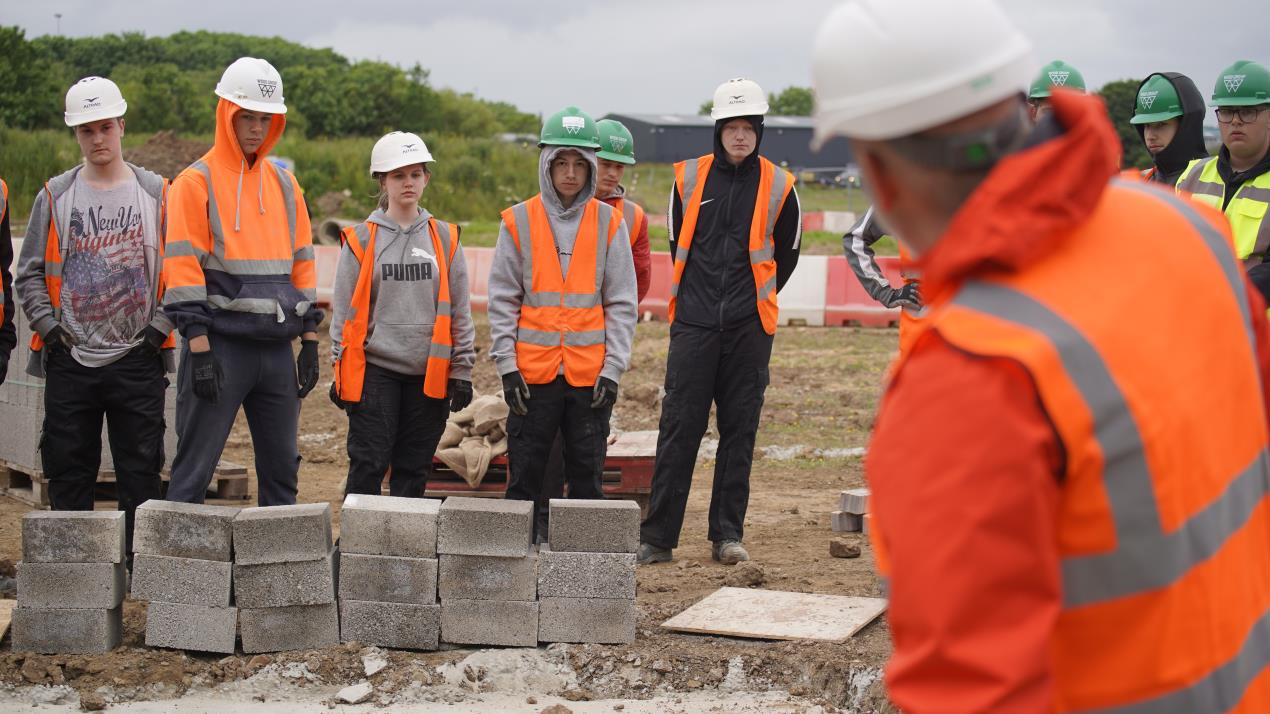UK’s first occupational traineeship for construction begins at Hartlepool College
A new generation of traineeship begins this week at Hartlepool College for 20 bricklaying learners.
Starting on 21 June, it involves a training programme in a working site environment to build a bungalow and garage, followed by a work placement with a local construction employer to gain vital on-the-job experience.
Employers receive £1,000 per trainee they take on to cover the cost of placements. Learners will also be working in partnership with the Association of Brickwork Contractors to provide additional skills needed prior to setting foot on site.

New occupational traineeships were announced by the Government in February, with pilots to start in construction and rail this summer.
Currently only 41% of Further Education (FE) construction learners join the industry either in apprenticeships or jobs. The new traineeship will provide a bridge between FE and employment, helping more learners move into construction. It will also enable more young people to fast track their career, with many able to potentially complete fast track apprenticeships that recognise what they have already learned. Later in the year the traineeship programme will include additional construction trades and launch at other colleges across the country.
The traineeship has been developed in partnership by the Construction Industry Training Board (CITB), the Department for Education, the Home Builders Federation (HBF), Association of Colleges (AOC), and the British Association of Construction Heads (BACH).
Gillian Keegan MP, Minister for Apprenticeships and Skills, said “Traineeships are an excellent, flexible, work-based route to help young people gain the confidence, skills and experience they need. It is fantastic to see the first occupational traineeship for construction launching at Hartlepool College. This will provide the opportunity to gain both the knowledge and vital on-the-job experience needed to tackle skills shortages across the sector, which will be vital as we build back from the pandemic. This is also great news for local employers who will have access to a new talent pipeline, both for the workforce they need today but also in the future.”
Steve Radley, CITB Policy Director, said: “It’s great that construction has been chosen for the first occupational traineeships. This gives us a real opportunity to get more FE learners into construction, giving them a leg up in their careers and helping employers meet their skills needs.
“Employers tell us that new starters may have done a lot of learning and have great knowledge but are short of workplace skills and experience – traineeships can help bridge this gap. The joint work with the FE groups on traineeships has been really productive and is hopefully just the first stage in bringing FE and employers much closer together.”
John Cartwright, Head of School for Construction and the Built Environment at Hartlepool College, and North East Chair of BACH, said: “We have carefully selected over 20 full time brickwork learners who we feel would benefit from this amazing opportunity and are preparing them for the world of work.
“We want this pilot to be a huge success not just for the learners who are taking part but also the employers who are investing time and effort into the learners and also construction providers and employers up and down the country who will be hoping that this will be a success.”
Find out more about bricklaying at Hartlepool College.
Notes for editors
CITB is an arm’s-length body of the Department for Education and works to research the sector’s skills needs, fund training, and improve standards. It is paid for by a levy on the construction industry itself.
Of the approximately 36,000 students per year who undertake construction courses in FE, only 41% move directly into an industry job or apprenticeship – see CITB research report Achievers and Leavers
The modern Hartlepool College of Further Education provides high-quality professional and technical education to students in the Tees Valley, East Durham and beyond.
The College has an exemplary track record of providing apprenticeships. It is one of the largest providers of apprenticeships in the area and achievement rates are the best out of all North-East colleges of further education.
How did we do today? Give feedback